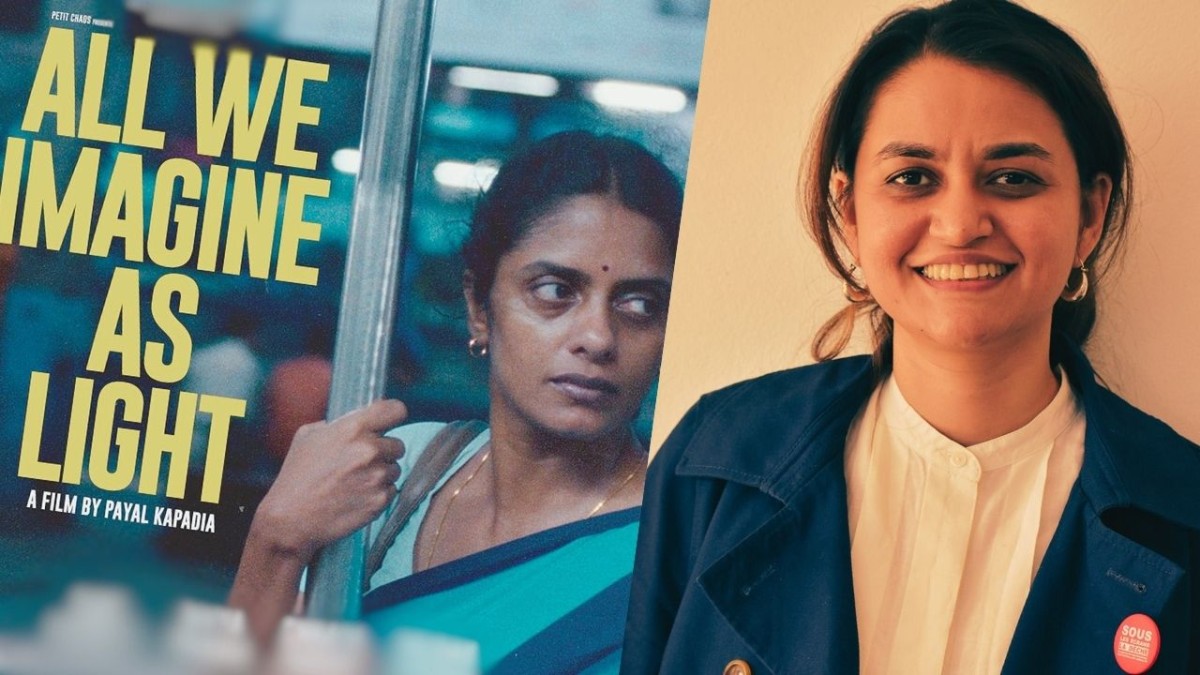
All We Imagine As Light, All We Imagine As Light", Review with powerful words, day 1 Collection,
All We Imagine As Light
“All We Imagine As Light,” directed by Payal Kapadia, has made a notable entry at the 2024 Cannes Film Festival, marking the first Indian film in competition in over three decades. This film, a drama centered around the lives of three women in Mumbai, has captivated audiences with its powerful storytelling, rich character development, and poignant themes.
Plot Overview
The narrative follows Prabha (Kani Kusruti), a nurse enduring a lonely life after her husband moves to Germany and gradually ceases contact. Her roommate, Anu (Divya Prabha), represents a stark contrast as she navigates a secret romance with a Muslim boyfriend, challenging societal norms and expectations. The third character, Parvaty (Chhaya Kadam), faces eviction and the loss of her long-time home, adding another layer of struggle and resilience to the story.
Themes and Cinematic Style
Kapadia’s film is deeply rooted in social realism, exploring the complex dynamics of modern Indian society, especially the lives of women constrained by cultural and social expectations. The film’s narrative progression and its contemplative nature are reminiscent of the works of Abbas Kiarostami, blending realism with a subtle sense of mystery and ambiguity.
The film’s aesthetics are noteworthy, with Ranabir Das’s cinematography capturing the textures of Mumbai through low light and inventive use of mobile phone illumination, contributing to a sense of intimacy and immediacy. The persistent presence of water, both in monsoon downpours and the ebb and flow of tides, symbolizes the characters’ emotional landscapes and their ongoing struggles against the currents of their lives.
Characters and Performances
Kani Kusruti’s portrayal of Prabha is a standout, offering a performance marked by stillness and depth, reflecting her character’s internal conflicts and unfulfilled desires. Divya Prabha’s Anu is vibrant and defiant, providing a dynamic counterpoint to Prabha’s resigned demeanor. Chhaya Kadam’s Parvaty adds another dimension, embodying the precariousness faced by many in urban India.
The film also touches on themes of displacement and identity, with the characters’ interactions reflecting broader societal tensions. The use of documentary elements interspersed with the narrative enhances the film’s authenticity, grounding its poetic cadence in the lived reality of Mumbai.
Musical Score
The film’s score, featuring compositions by Ethiopian pianist Emahoy Tsegué-Maryam Guèbrou, complements its emotional tone, with feathery piano pieces underscoring key moments and enhancing the film’s meditative quality. This musical choice adds a layer of introspection and resonates deeply with the film’s themes of longing and resilience.
Reception and Impact
“All We Imagine As Light” has been praised for its nuanced storytelling and Kapadia’s skillful direction, which navigates the complexities of its characters’ lives with sensitivity and insight. The film’s premiere at Cannes and its subsequent win of the Grand Prix have solidified Kapadia’s reputation as a significant voice in contemporary cinema, capable of weaving intricate, character-driven narratives that reflect broader societal issues.
Conclusion
“All We Imagine As Light” is a triumph of quiet, contemplative cinema. Its exploration of the lives of three women in Mumbai against the backdrop of cultural and social constraints is both timely and timeless, offering insights into the human condition through its beautifully rendered characters and their stories.
Payal Kapadia’s film is a testament to the power of cinema to illuminate, challenge, and inspire, marking a significant milestone for Indian cinema on the global stage.
“All We Imagine As Light,” directed by Payal Kapadia, has received significant critical acclaim and made a notable impact on the box office and film festival circuits.
Box Office Collection
The film’s box office performance has been impressive, particularly for an independent film with a focus on nuanced storytelling. While specific global box office figures are not extensively detailed, its premiere at the Cannes Film Festival and subsequent awards have generated considerable buzz.
The film’s distribution deal with Sideshow and Janus Films for North America suggests a robust performance in the art-house circuit, promising strong receipts from both domestic and international markets.





